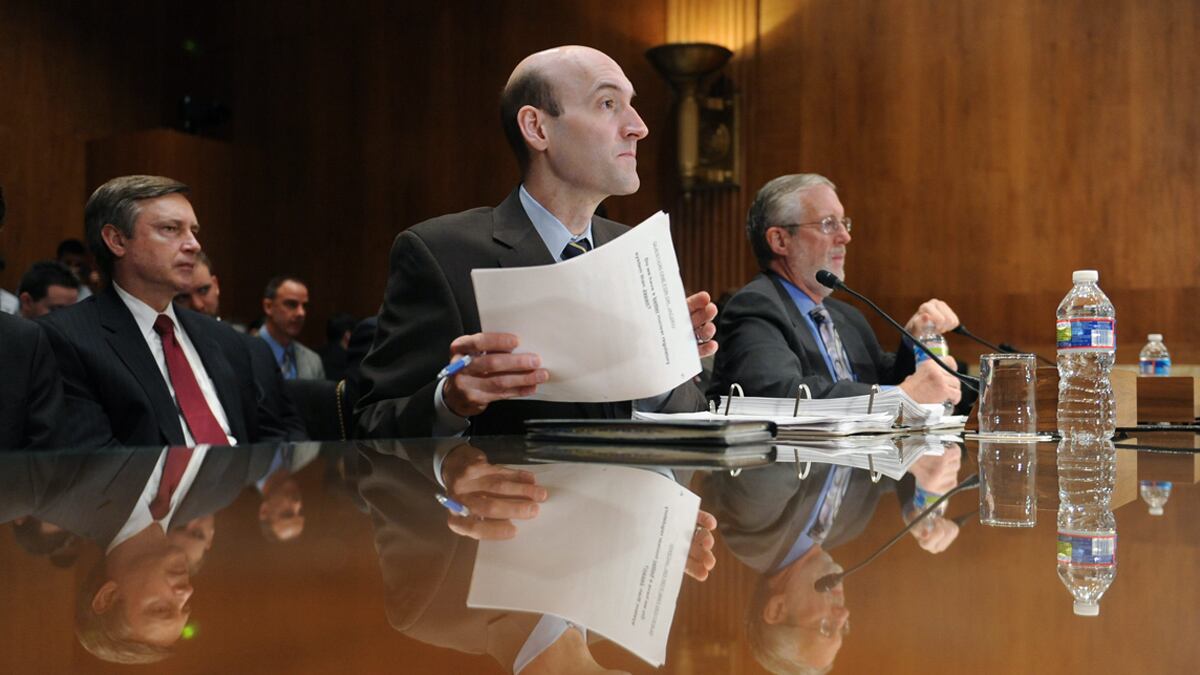The tension had been growing for at least six months. So when Gregory Jaczko, the chairman of the Nuclear Regulatory Commission, announced on Monday he’d be stepping down, it ended a long and bitter coup against America’s top nuclear regulator.
Despite his term lasting until next summer, Jaczko said in a statement that he would be leaving early, offering a vague excuse. “After an incredibly productive three years as chairman, I have decided this is the appropriate time to continue my efforts to ensure public safety in a different forum,” he said.
Nuclear insiders were surprised by the sudden announcement. In the face of growing criticism since last fall, Jaczko had stood defiant, refusing to step down and privately boasting that he still had the support of the White House. Few thought he would actually heed demands of his four other commissioners and the nuclear industry, the latter of which opposed his nomination from the start.
But the pressure became too great from both, several industry and government officials say. Both parties wanted to expand the use of nuclear facilities and further explore options for storing nuclear waste. Jaczko had largely put the kibosh on both, most significantly by ending research at Yucca Mountain. Many industry and scientific groups, including the influential American Nuclear Society, have supported continuing the review of the Nevada repository. Nearly $13 billion has already been spent on researching the site, which some scientists believe could be the nation’s most secure place to store spent nuclear fuel.

Neither Jaczko nor his fellow commissioners would speak to the media on Monday. But members of Congress, mostly senior Democrats, have defended Jaczko as a thoughtful and thorough regulator. Sen. Barbara Boxer, who chairs the Senate’s environment and public-works committee, blamed Jaczko’s assault on the nuclear industry, which pressured Republicans to drive the chairman from office over costly safety regulations, including some that he pushed after the Fukushima disaster last year.
Jaczko was never popular with his colleagues, The Daily Beast learned in December. His abrasive management style and major differences in policy earned the ire of fellow commissioners, who privately pleaded to the White House last year to admonish him. When White House then-Chief of Staff Bill Daley told them to work it out themselves, the commissioners took the campaign public.
At the epicenter of the feud inside the NRC’s Rockville, Md., headquarters, even administrative employees could feel the heat of warring commissioners. According to a former staffer, Jaczko’s abrasive management style won him few friends. “He’s a nice guy, but boy could he have a temper,” said the aide, who asked not to be identified speaking candidly. Other officials tell stories of Jaczko slamming doors and yelling at the top of his lungs at people. When the bickering initially became public, a top aide to Jaczko responded that the chairman can get passionate but was just interested in keeping his head down and getting things done. The disagreements, however, had become a distraction.
Related to Yucca, the group of four commissioners believed Jaczko was too close to the political process. The commissioner, who was a former aide to Nevada Sen. Harry Reid, had often been accused of opposing Yucca development because of the reelection concerns of his onetime boss. Nevada has historically opposed the Yucca project over concerns that large quantities of waste buried deep underground could impact the regional environment. There was also a personal lack of trust. Despite Jaczko’s having a Ph.D. in particle physics, the other commissioners noticed he had little experience working with the nuclear industry, which is a large part of the chairman’s duties.
Jaczko will remain in office until his replacement is appointed by the White House and confirmed by the Senate, likely later this fall. Many industry cynics see reason to believe the Obama administration will leave the decision of a replacement to Reid, who is likely to support another opponent of the Yucca project. Yet Jaczko’s resignation still illustrates the influence of the nuclear industry. Last year, the U.S. government approved two new nuclear power plants—the first in nearly 35 years. Sites for more are currently under consideration.





